Improving The Ticket Selling Experience
Many endured the 'buyer experience' from hell in trying to get Oasis tickets. Without being exploited, there are surely better ways to secure gig tickets.
At 11:15 on Saturday morning, I finally got through to the checkout to buy tickets for Oasis’ reunion tour. It had been a tedious ordeal for over two hours, amidst constantly refreshing webpages and watching my queue number slowly tick down. As had become de rigeur with these huge events, it was a group effort. Specifically, my friend group from school, who first saw the band together at Finsbury Park in 2002, were in a WhatsApp group and keen to see who got to the checkout first. If anyone managed it. After seeing my queue position dwindle from 20,000, then quickly drop from four figures, I was ready and primed.
What happened next may be familiar to millions. Standing tickets had sold out and no matter how hard I tried, I failed to find a pair of seats sat next to each other, let alone four to cover the group. It became clear that the advertised priced tickets had been snapped up, only price gouging remained. Tickets that should have retailed at £150 (still an obscene amount) were now classed as ‘in-demand’ with an additional £200 added to the price tag. Those seats now came with ‘platinum tickets’, whatever that meant, and you can add a further £200 for an impulse buy. The gigs weren’t sold out, but you’d need to be desperate to pay those prices. It now transpires that as the surge pricing was not advertised, Ticketmaster may well have breached UK consumer law.
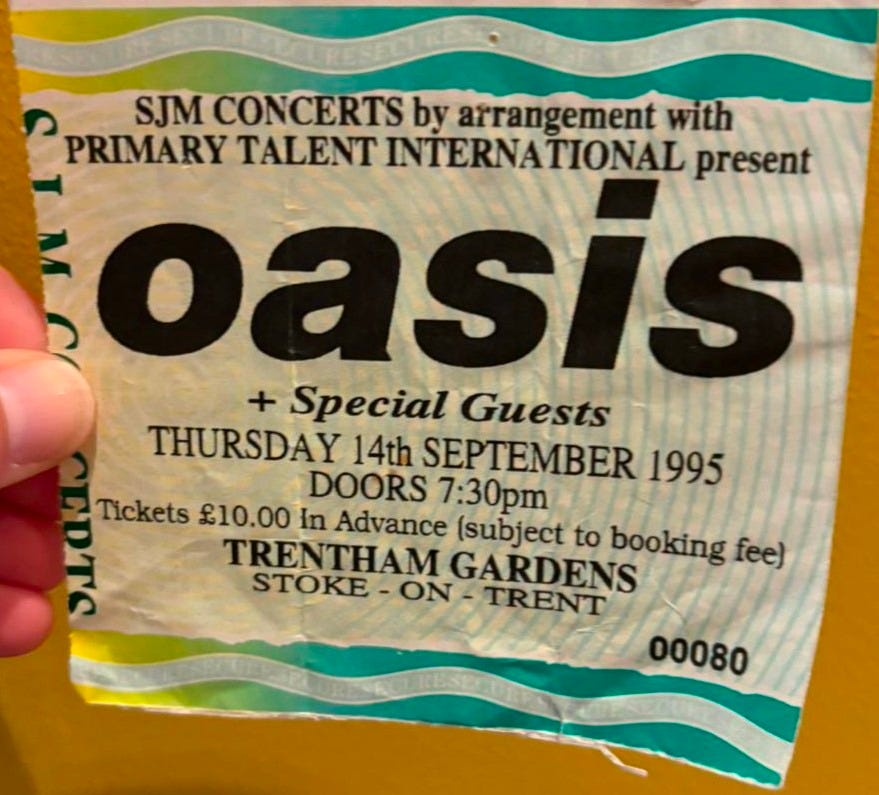
Amidst the groans of a buyer experience ruined by technology and corporate greed, many had gone through their memory boxes. A full 29 years ago, you could have seen Oasis for a mere £10 at Stoke-on-Trent’s, Trentham Gardens. Even tickets to the band’s mega gigs such as Maine Road in 1996 would have cost £17.50 each. That Finsbury Park gig only cost £28.50. Sure, there’s inflation and service fees, but is it worth paying £150 on its own, especially after that awful ticket-buying experience?
Simpler Times - Buying In Person
As I started watching live music, it all seemed a lot simpler. Typically, you bought a copy of a music magazine (NME or even Sandman Magazine if you were specifically in Yorkshire) and found out which bands were touring your area. You’d then head to your local music shop and buy a ticket at the counter. Even better, for gigs outside your local area, you could plan a trip as the details would be advertised on a handwritten piece of white card in the shop window, including return transport on a bus.
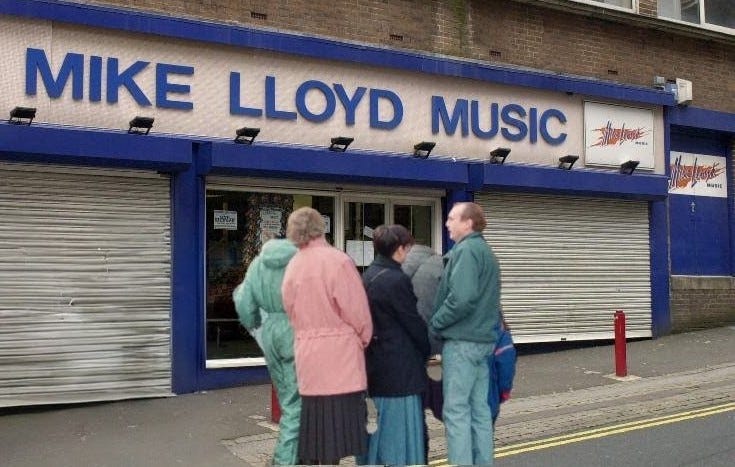
One of the interesting aspects of the manuscript was how gigs brought together like-minded people. Back in the 1990s, you could book a trip to see your favourite band and leave the bus having made a whole new set of mates. In the mid-2000s, this practice went online as a savvy generation of music fans chatted on their computers and arranged to meet in real life, either in a spot before the gig or at the gig itself.
Breaking Up The Live Music Monopoly
While the culture secretary, Lisa Nandy, has launched an investigation into surge pricing, you could also argue that online ticket selling needs a revamp. The live music monopoly governed by Live Nation (the promoter with exclusive venues) and Ticketmaster (the exclusive ticket seller to sell tours featuring Live Nation’s exclusive venues) should be broken up.
There is no hint nor inclination from either party for any improvement on how fans buy tickets online. Why would there be? Without a competitor to bid for the contracts, the bands sell out the gigs and only the exceptions like Taylor Swift, and Robert Smith of The Cure seem to look out for their fans.
On Saturday morning, between the odd cup of tea, I wondered about alternatives. A better way to buy gig tickets rather than watching progress bars on several devices at once. Apparently, technology has improved our lives yet try telling that to the millions online that morning. Fraught with the terror of pressing the wrong button on my phone and condemning hours of progress in a queue, I mused on different methods.
There’s the Queue-Fair system which is employed by The York Ghosts Merchants to sell limited batches of their collectible keepsakes. Of course, Ticketmaster used a queue but without managing demand and releasing each date at the same time, many were left queuing for the queue. There are also indications that their bot detectors were flawed as many were thrown out of the checkout for suspicious behavior. In a blog post, I compared my experience of queuing for Glastonbury Tickets with trying to secure a York Ghost. Indeed, there are fairer alternatives out there.
Fan Loyalty
According to the ticket descriptions, rather than simply standing and seating, you could pay a bit extra for added perks. One of which was access to a hospitality area. Essentially, you pay £120 more for a spot in the moshpit and your own secluded area away from the hoi polloi. Given that to be deemed a ‘loyal fan’ in Friday’s presale may have amounted to subscribing to the band’s marketing the day beforehand. This option also smacked of 2020s corporate greed as thousands simply won’t be able to afford tickets, let alone those with perks.
Which leads onto the question of how you define a fan’s loyalty. Is it the number of shows they’ve been to, when they first saw the band, how often they buy the new album on the day of release? Does it go a little deeper than that? When The Stone Roses reformed, they announced a gig in Warrington in 2012. To get tickets, you had to show up at the venue’s box office clutching a piece of memorabilia that proved you were a fan. It could have been a CD, record sleeve, band t-shirt, or a ticket to the band’s huge Heaton Park gigs that summer. True fans had those items close to hand, they didn’t need to pay extra to get closer.
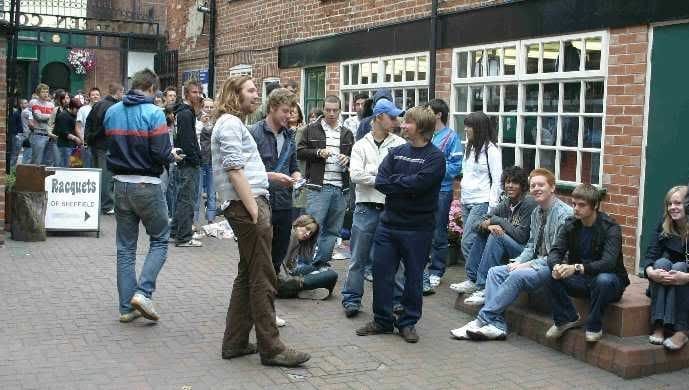
Could Oasis have done something similar? Rather than using Ticketmaster as an exclusive ticket seller, maybe help out some small businesses. The UK tour went through Cardiff, Manchester, London, Edinburgh, and Dublin. For each city, a few thousand tickets could have been made available at local music shops. Sure, that would likely mean queuing overnight, yet only the dedicated fans would be willing to do that. With a four-ticket cap (perhaps even two), you can ward off touts using bot technology. Rather than being 180,567th in the queue, you can chat away with real fans to while away the time. Better still, local cafés can open up to serve hot beverages and snacks, benefitting even more small businesses.
The Arctic Monkeys Grapes Experience
One victim of the ‘big edit’ of my manuscript was an exclusive Arctic Monkeys gig at The Grapes in Sheffield. By September 2005, it was clear that the band were the worst kept secret in town. Reading and Leeds Festival proved that there was a huge, nationwide audience ready to be tapped. With a capacity of only 74, tickets for the hastily-annouced Grapes show were in short supply. and you had to prove your loyalty to get them. Not by showing up with a CD (the band’s first single was yet to be named), but by showing up early at a local music shop and queuing. I arrived before the break of dawn and spent the remaining hours chatting with friends before the drummer’s Mum arrived with muffins as a makeshift breakfast. I could have stayed in bed and missed out yet my dedication to the cause was rewarded with a pair of tickets to an unforgettable gig. The time was also well spent as I got to know dedicated fans who would also be at the gig.
Oasis signed off on price gouging, and they had to use Ticketmaster as an exclusive ticket seller. The question remains of how much longer dedicated fans should have to put up with such a poor buying experience. Until that monopoly is broken and alternatives are put into place, more dedicated music fans will suffer. Corporate greed will seemingly always win out. The power remains in the customer, I’m planning on using the £350 I saved by seeing more local bands… or trying to buy a Glastonbury ticket.




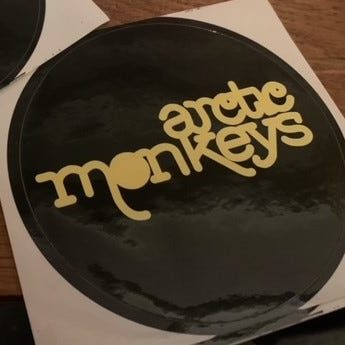
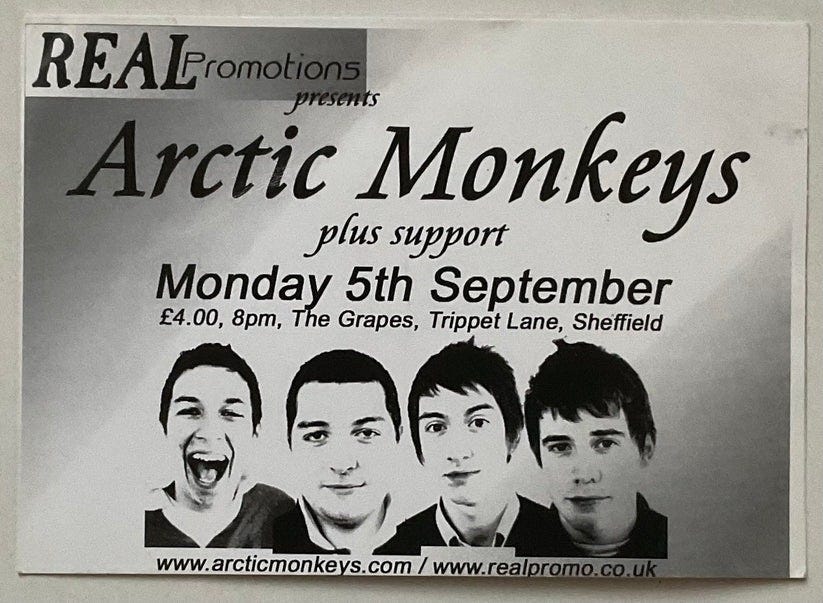
i'm not old enough to have lived through the physical queues (excluding my Justin Bieber concert when I was 9 yo), yet I still reminisce on what that must have been like. Currently working on my Bachelor Thesis on how to solve Ticketmaster's faults!